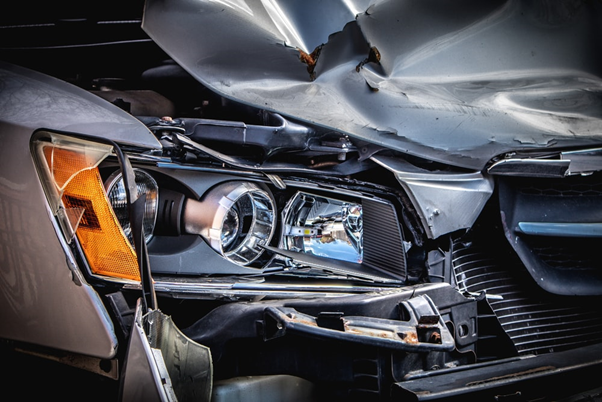Now Reading: 4 Things You Shouldn’t Say After a Car Accident
-
01
4 Things You Shouldn’t Say After a Car Accident

4 Things You Shouldn’t Say After a Car Accident
When you have never been involved in a car accident before, it’s easy to make mistakes. You might not know what to do at the scene after someone causes your accident, how to react, or what steps you need to take to ensure you’re protecting yourself from any future personal injury claims.
Dealing with a vehicle collision can be overwhelming. Many people feel anxious and fearful, leaving them in shock. But you can make a difference to save yourself from possible claim denial and legal liabilities. Whether you think you’re the car accident victim or the at-fault party, it’s crucial to think first before doing anything. Try to observe your surroundings and gather more information before reacting.
The more you learn before such an event happens, the less at risk you may be of doing or saying anything that may impact your chances of receiving a settlement fitting for the situation. With that in mind, here are a few of the many things you shouldn’t say after a car accident.
‘I’m Sorry’
“I’m sorry” can be interpreted in many different ways. However, an auto accident attorney San Antonio residents use, and car accident lawyers in most states will tell you that saying “I’m sorry” at the scene of an accident regardless of whether it was your fault or not is one of the last things you should do.
Saying “I’m sorry” can imply that you’re guilty, and it might be interpreted as an admission of guilt even if you weren’t at fault. Even if you thought you were at fault, a scene investigation needs to take place that may prove that wasn’t the case.
While you feel really sorry for what happened, remember that this statement can jeopardize your career and life. You might see the other driver or passengers severely injured. Such scenes can break your heart. But resist saying sorry if you don’t want to shoulder all the possible legal consequences, especially if you know what you were driving safely.
Instead of saying sorry, show that you care by contacting the emergency response team immediately. In that way, victims will be brought to the nearest hospital and receive prompt medical attention. Cooperate with the responding police officers by providing your driver’s license and insurance information.
‘I’m Okay’
Adrenaline can mask even the most severe injuries. In the immediate moments after a car accident, you might feel okay, but that doesn’t mean you are.
Refrain from saying you’re okay, even if you’re 100% certain that you are. If it later turns out that you have injuries and need to make a personal injury claim to cover your healthcare costs, the person responsible for the accident may argue that you said you were fine and that your medical expenses aren’t related to the accident.
Instead, say nothing, make sure everyone at the scene is safe, and access medical help. A trip to the emergency room can allow you to receive a clean bill of health or have injuries identified and treated.
Don’t underestimate small cuts, bruises, and wounds. Car accidents usually result in internal bleeding because of the strong impact during a collision. Besides, you need to get medical attention to document your injuries and obtain a medical certificate for claims purposes.
‘X Was the Cause’
After a car accident, you may be confident that you know what caused it. For example, you might know that a vehicle came out of nowhere, and you had no option but to hit them.
However, without experience in criminal law or the law in general, you may not know the circumstances around the accident with any certainty, and speculating may not help your personal injury claim in the future.
Rather than telling scene investigators what you believe the cause of the accident was, describe the events that happened and let the experts take the lead.
What to Say After a Car Accident
You now know what you shouldn’t say, but some things can be worth saying. Ask the other vehicle driver for their license and insurance information if they are in a position to provide it. You can also ask all those at the scene whether they require medical attention.
If emergency services aren’t at the scene, ask if anyone has called for the police yet. If not, you can be the one to do it.
In an unfamiliar situation like a car accident, it’s easy to make mistakes and say things that may hurt your case. However, now that you’re aware of what you shouldn’t say, you may be in a much better position to avoid these errors and put together a strong case.










